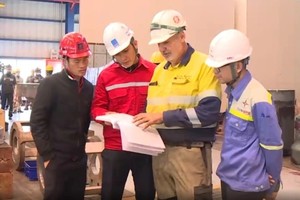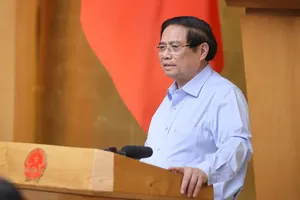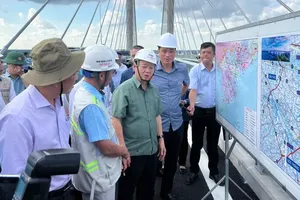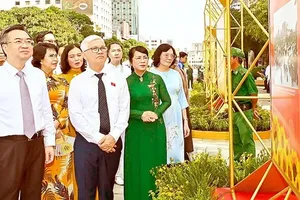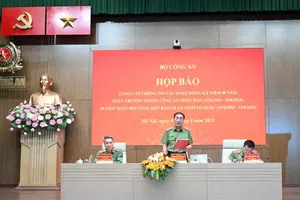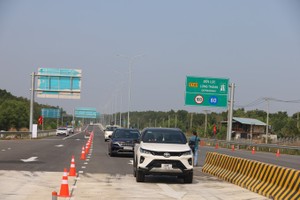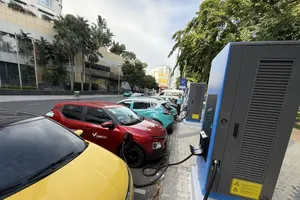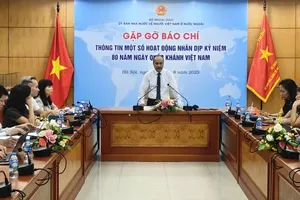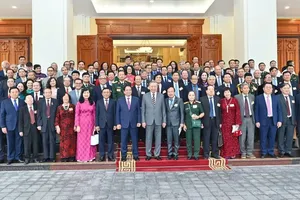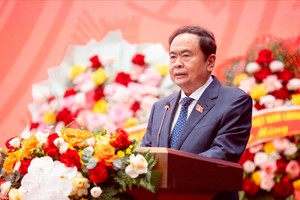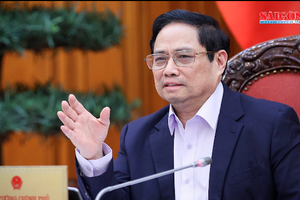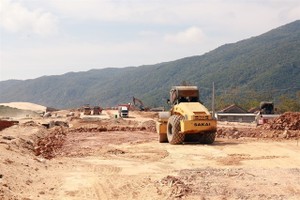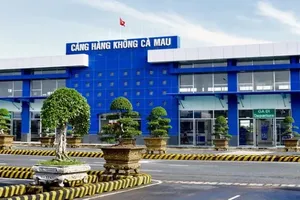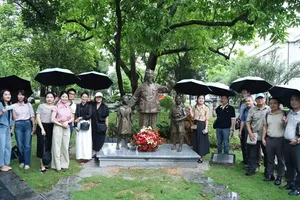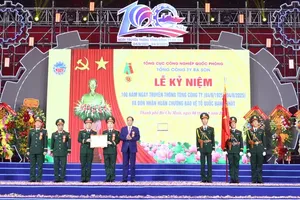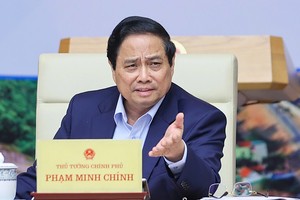
Addressing the first Congress of the Ministry of Foreign Affairs’ Party Organisation for the 2025–2030 tenure in Hanoi on July 15, which coincided with the 80th anniversary of Vietnam's diplomatic sector (August 28), Prime Minister Pham Minh Chinh praised the ministry and its Party Organisation during the 2020–2025 term, noting their close coordination with other ministries, agencies, and international partners to contribute to national development and foster peace, cooperation, and development in the region and beyond.
He highlighted the Party Organisation's leadership in concretising the 13th National Party Congress’s foreign policy guidelines through over 300 reports and proposals, 17 key resolutions and plans, including Resolution No. 59 on global integration in the new era, a cornerstone of Vietnam’s strategy for sustainable development.
Under the ministry’s guidance, Vietnam has expanded its diplomatic footprint, increasing its ties from 189 to 194 countries and boosting strategic and comprehensive partnerships to 37. For the first time, Vietnam has established strategic partnerships or higher level with all five permanent members of the United Nations Security Council, all G7 nations, and 18 of the 20 G20 countries, he said.

Vietnam has also effectively assumed prominent roles at multilateral forums, especially within ASEAN and the UN. Notably, Hanoi will host the signing ceremony of the first-ever UN Convention against Cybercrime in 2025.
The PM lauded the success of “vaccine diplomacy”, which secured early access to Covid-19 vaccines, enabling the country to reopen its economy ahead of many others and paving the way for its current economic achievements.
Economic diplomacy has taken on growing importance in Vietnam’s high-level foreign engagements, alongside cultural diplomacy, which has led to UNESCO recognition of dozens of Vietnamese cultural heritage elements. Progress has also been made in external communications, citizen protection, and support for overseas Vietnamese communities.
Reflecting on the past term, Prime Minister Pham Minh Chinh commended the ministry’s Party Organisation for its efforts in Party building and rectification, in line with the Party Central Committee’s Resolution 18 on organisational streamlining. He called for continued improvements in foreign affairs laws and mechanisms, stressing the need for unity, timely strategic advice, and the development of a modern, professional, humanistic, and effective diplomatic force.
Looking ahead, with global uncertainties expected to intensify, he urged the ministry and its Party Organisation to effectively realise the Party’s resolutions, especially those to be reached at the 14th National Party Congress, slated for early 2026, the Congress of the Government’s Party Organisation and the Congress of the ministry’s Party Organisation for the 2025-2030 tenure.

The sector must continue with its pioneering and core role in pursuing a foreign policy of independence, self-reliance, diversification, and multilateralisation, being a good friend, a trusted partner and responsible member of the global community for the sake of peace and development, he said, adding that these aim to support Vietnam’s long-term goals of becoming a modern industrialised country with upper-middle income by 2030, and a high-income developed nation by 2045.
To that end, diplomacy must monitor global trends, offer timely strategic advice, and ensure the Party and State are not caught off guard, he said.
As the nation’s development hinges on three pillars of socialist democracy, a socialist rule-of-law state, and a socialist-oriented market economy, the sector must therefore drive rapid and sustainable economic growth, bolster extensive and effective integration, and align foreign and domestic strategies.
It must also promote green growth, circular and knowledge-based economies; diversify products, markets, and supply chains, and push forward three strategic breakthroughs in institutional frameworks, infrastructure, and human resources. It should also foster a culture that integrates global values while sharing Vietnam’s own.

Party building remains a key priority, he said, urging the Foreign Ministry’s Party Organisation to enhance leadership capacity, fight corruption and negativity, and cultivate a culture of dedication, passion, and public service among diplomats.
In his speech, Deputy Prime Minister and Minister of Foreign Affairs Bui Thanh Son noted that with strong political will, the sector has made historic achievements, becoming a bright spot in the country’s overall success and contributing to the success of the 13th National Party Congress’s resolution.
The event also featured lively discussions on a political report and leadership reviews, with particular attention to economic and science-technology diplomacy.
